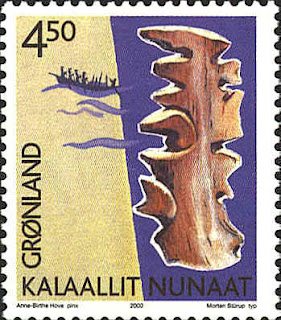We have material evidence of many mathematical technologies that have been used in other places,
times and cultures. In many of those cultures, there may not have been a term for 'mathematics' -- or for 'art', or for 'technology' -- in the way we frame these entities. So these objects and the techniques that created them come from cultural contexts that are almost certainly quite different from those of contemporary urban Canada, for example.
Can we connect with these technologies as mathematical tools in meaningful ways that respect the cultures that made and used them?
 We will certainly be reframing things according to our own understandings of mathematics, and tools. We can begin to conjecture and intuit how they may have been significant in other cultures, and years of study and/or cultural immersion may
We will certainly be reframing things according to our own understandings of mathematics, and tools. We can begin to conjecture and intuit how they may have been significant in other cultures, and years of study and/or cultural immersion may
help us do this better, but we will never fully live other cultures, especially those that have changed or are gone.
The organizers of this working group discussed this issue. Our collective take on it is this:
•We can approach these objects with a sense of wonder. JF writes:
With that proviso, we we will begin to explore these objects, from cultures somewhat distant from our own, with a sense of curiosity and wonder, and from a starting point in our own sense of what mathematics and technologies are. We will no doubt find some surprises and fascinating things, and we will not claim to have a full sense of these lifeways and cultures -- but will take a small step towards approaching them.
Ascher, M. & Ascher, R. (1981/1997). Mathematics of the Incas: Code of the Quipu. New York: Dover.
times and cultures. In many of those cultures, there may not have been a term for 'mathematics' -- or for 'art', or for 'technology' -- in the way we frame these entities. So these objects and the techniques that created them come from cultural contexts that are almost certainly quite different from those of contemporary urban Canada, for example.
Can we connect with these technologies as mathematical tools in meaningful ways that respect the cultures that made and used them?
 We will certainly be reframing things according to our own understandings of mathematics, and tools. We can begin to conjecture and intuit how they may have been significant in other cultures, and years of study and/or cultural immersion may
We will certainly be reframing things according to our own understandings of mathematics, and tools. We can begin to conjecture and intuit how they may have been significant in other cultures, and years of study and/or cultural immersion may help us do this better, but we will never fully live other cultures, especially those that have changed or are gone.
The organizers of this working group discussed this issue. Our collective take on it is this:
•We can approach these objects with a sense of wonder. JF writes:
Things we are curious about, things we try to understand, make sense of, things that surprise us, things in which we also recognize ourselves, but mostly things to be curious about! So we do not pretend to know what they are, what they do, what they are for, what they mean, we don't appropriate them. They fascinate us, and we share that fascination!
Yasmine writes:
I always see it as a from of getting to know one another and getting closer to each other....We are not saying “what the tools are” we are only sharing “ how the tools make sense to us” and invite others to do the same thing.
Marcia Ascher spent over ten years studying Inca quipu. She writes, in the seminal work, Mathematics of the Incas: Code of the Quipu:
Using material things as a source of knowledge does not, however, do away with distortion...There are some things in one culture for which there are no counterparts elsewhere. When this happens, understanding becomes even more difficult for someone outside the culture...And the problem increases when an attempt is made to know about a culture that is remote in time as well as in space. (Ascher & Ascher, 1981/1997, pp. 13-14)
With that proviso, we we will begin to explore these objects, from cultures somewhat distant from our own, with a sense of curiosity and wonder, and from a starting point in our own sense of what mathematics and technologies are. We will no doubt find some surprises and fascinating things, and we will not claim to have a full sense of these lifeways and cultures -- but will take a small step towards approaching them.
Ascher, M. & Ascher, R. (1981/1997). Mathematics of the Incas: Code of the Quipu. New York: Dover.


No comments:
Post a Comment